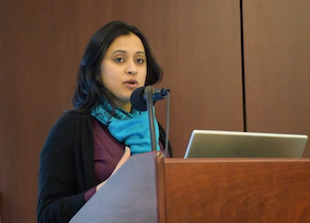By Bhumika Muchhala* | IDN-InDepthNews Analysis
GENEVA (TWN | IDN) – The United Nations General Assembly adopted a resolution on principles to guide sovereign debt restructuring processes on September 10.
This landmark resolution was submitted to the General Assembly by South Africa (current chair of the Group of 77 and China developing countries). It was initiated by Argentina in the wake of the vulture funds lawsuit by an international hedge fund against the country.
The resolution yielded a ‘yes’ vote from 136 countries from Latin America, Asia, Africa and the Caribbean. A ‘no’ vote was registered by 6 countries: the United States, Germany, the United Kingdom, Japan, Canada and Israel. An ‘abstain’ vote, meaning that these countries abstained from voting either yes or no, was registered by 41 countries.
The votes reflect the geo-political pattern in the UN where developing countries vote in favour of measures to increase the stability and fairness of the international financial system, while the most powerful developed countries often block such measures, arguing that such discussions must only take place within international financial institutions and not the UN.
The vote means that the UN General Assembly has declared that sovereign debt restructuring processes should be guided by nine basic principles. Unlike the Security Council, which has the power to issue legally binding resolutions, General Assembly resolutions are non-binding. But they carry political weight.
While the resolution does not reflect the original subject of establishing a multilateral legal mechanism for sovereign debt restructuring, the nine principles that have been adopted have been called a historical breakthrough because the vast majority of nations in the world have spoken out for a change to the current creditor-led debt system that has repeatedly failed numerous countries.
Nine core principles
The resolution outlines nine core principles that should be respected when restructuring sovereign debt: sovereignty, good faith, transparency, impartiality, equitable treatment, sovereign immunity, legitimacy, sustainability and majority restructuring.
The principle of sovereignty is encapsulated by the following language in the resolution, “A sovereign state has the right … to design its macroeconomic policy, including restructuring its sovereign debt, which should not be frustrated or impeded by any abusive measures.”
The principle of sustainability implies that sovereign debt restructuring workouts lead to a stable debt situation in the debtor state, preserving creditors’ rights while promoting economic growth and sustainable development, minimizing economic and social costs, warranting the stability of the international financial system and respecting human rights.
The principle of sovereign immunity from jurisdiction and execution regarding sovereign debt restructurings is a right of States before foreign domestic courts and exceptions should be restrictively interpreted.
Transparency focuses on the need to enhance the accountability of the actors concerned.
Equitable treatment refers to the equitable treatment of creditors and debtors, and impartiality refers to the impartial conduct and decisions of all institutions and actors involved in sovereign debt restructuring workouts.
The principle of legitimacy entails respect for the requirements of inclusiveness and the rule of law.
Majority restructuring implies that sovereign debt restructuring agreements that are approved by a majority of creditors are not to be impeded by other States or a non-representative minority of creditors.
The vote comes one year and a day after the General Assembly first agreed to negotiate and adopt a multilateral legal framework for sovereign debt restructuring processes on 9 September 2014. Following the September 2014 vote, an Ad Hoc Committee was established on 29 December 2014, with the mandate to elaborate a multilateral legal framework for sovereign debt restructuring processes. Bolivia chaired the Committee.
The current vote results, when compared to last year’s vote results, reflect an increase of 12 countries for the ‘yes’ vote and a decrease of 5 countries for the ‘no’ vote. The overall movement is that of increased support for the momentum on debt restructuring. The same number of 41 countries abstained from a vote in both years.
The countries whose votes changed from an abstaining vote to a ‘yes’ vote are Iceland, Ukraine, Armenia, Serbia, Papua New Guinea and Montenegro. The countries whose votes turned from a ‘no’ vote in 2014 to an abstaining vote this year are Australia, Czech Republic, Finland, Hungary and Ireland.
With the exception of the six countries that voted against the principles, all other developed countries abstained from a vote. Southern countries that also abstained from a vote included Mexico, Colombia and Gabon.
Debt-stricken Greece abstained from voting. However, Greece made a significant break from the European Union’s collective boycott of the entire process by participating in the final negotiation session of the Ad Hoc Committee at the UN headquarters in New York.
Other developed countries, most notably the U.S., Japan and Canada, as well as the International Monetary Fund (IMF) also refused to participate in the three weeklong negotiation sessions of the Ad Hoc Committee over the last one year.
*Bhumika Muchhala is a Senior Researcher with the Third World Network (TWN). Full text of this article that was first carried by South Bulletin South Bulletin 86, dated October 9, 2015, is available at http://www.southcentre.int/south-bulletin-86-9-october-2015/ [IDN-InDepthNews – 10 October 2015]
Photo: The writer | Credit: WEDO
2015 IDN-InDepthNews | Analysis That Matters
Send your comment | Subscribe to IDN newsletter
Follow us on Twitter and Facebook:
http://twitter.com/InDepthNews
http://www.facebook.com/IDN.GoingDeeper

